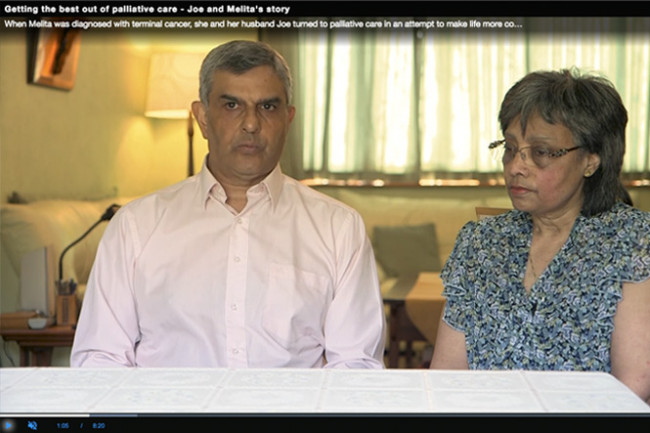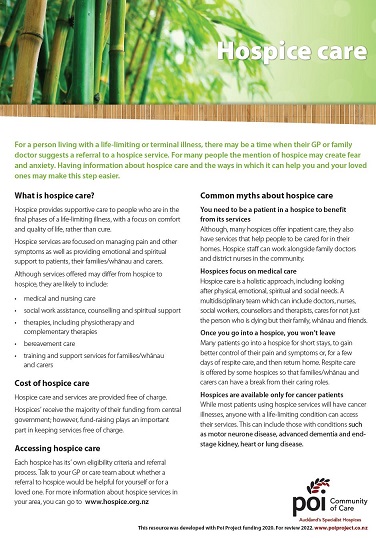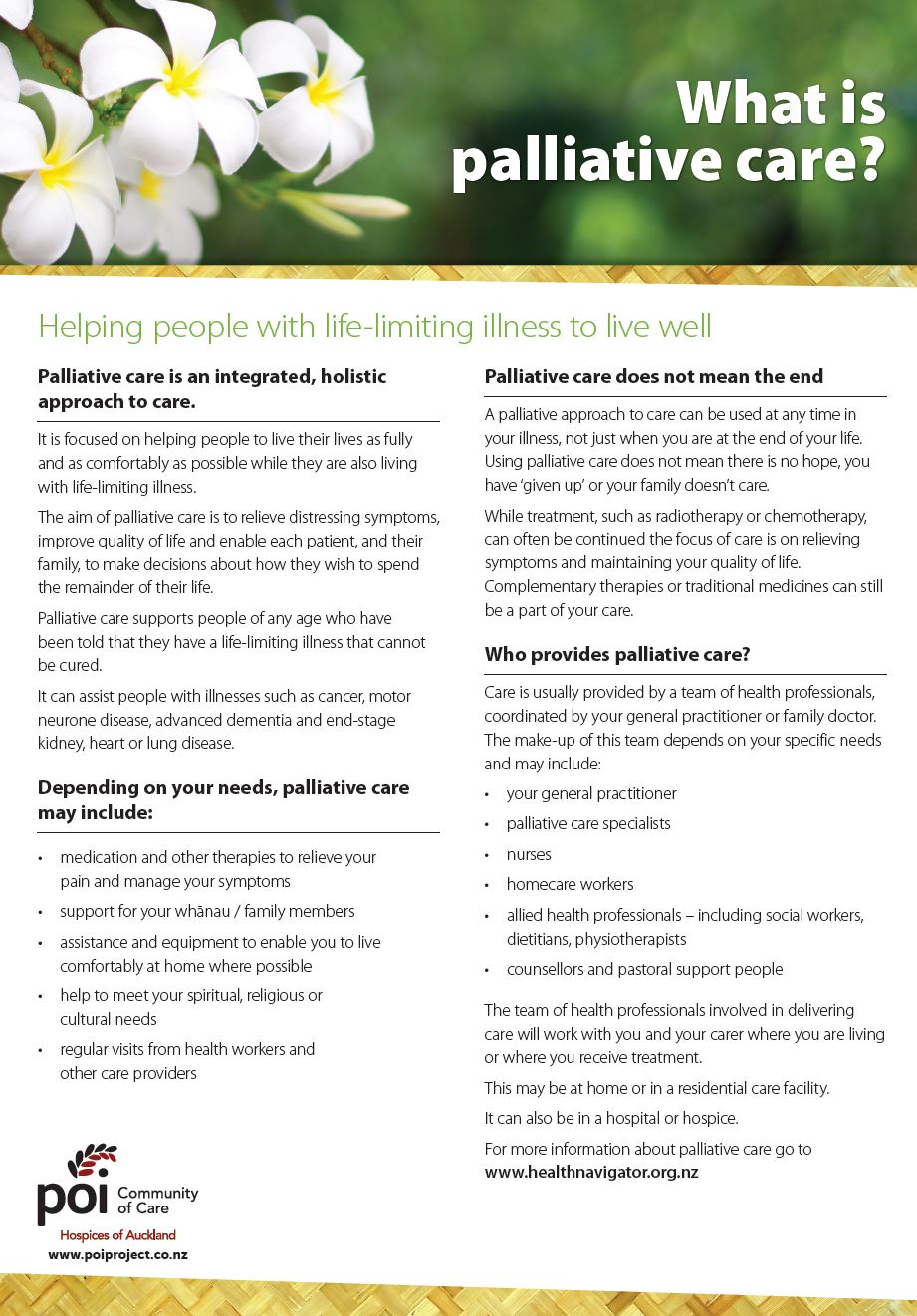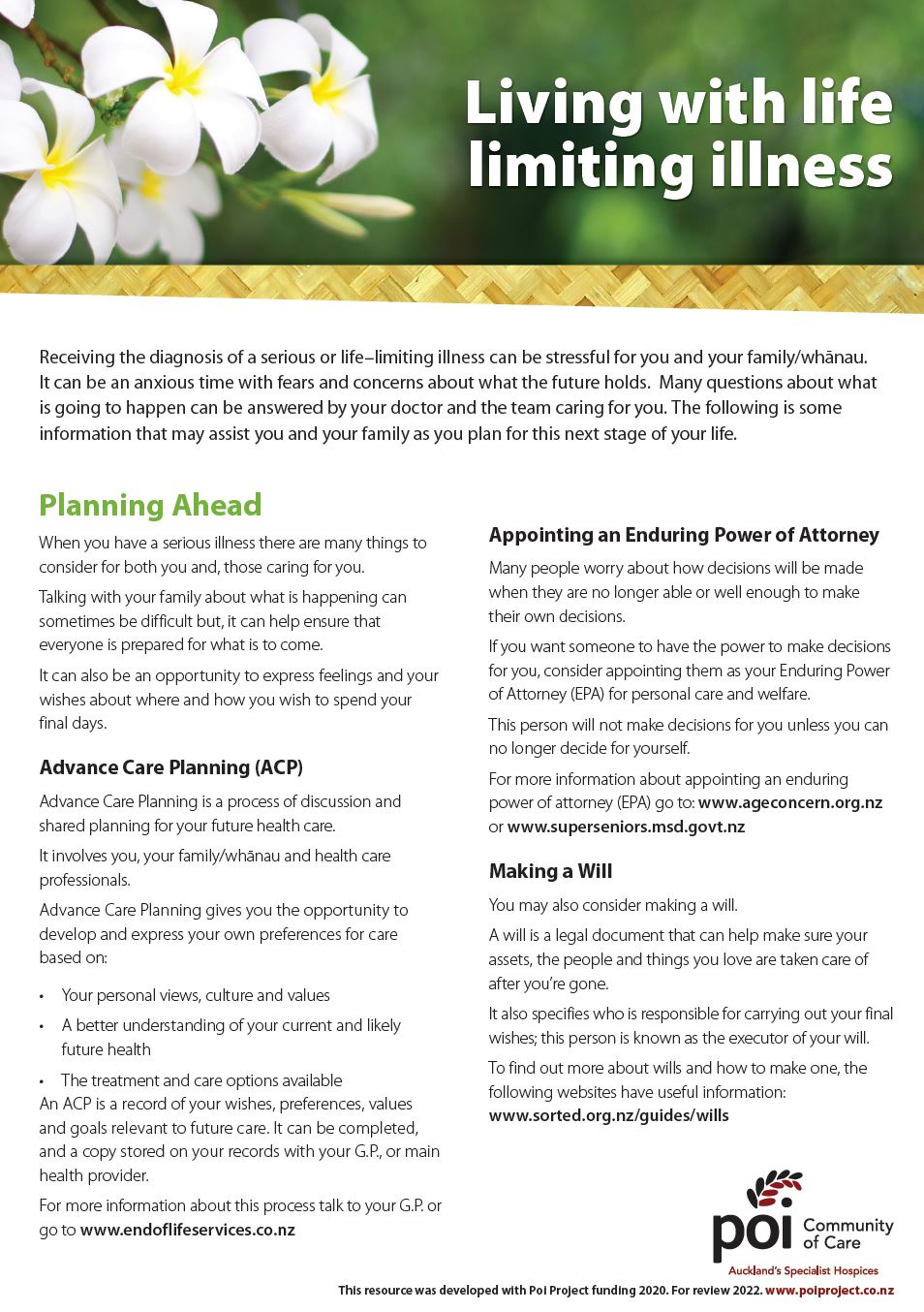Palliative care is widely misunderstood by many New Zealanders. The following are examples of common myths about palliative care:
| Myths | Facts |
|---|---|
| Palliative care hastens death | Palliative care does not hasten death. It provides comfort and the best quality of life from diagnosis of an advanced illness until end of life. |
| Palliative care is only for people dying of cancer | Palliative care can benefit patients and their families from the time of diagnosis of any illness that may shorten life. |
| People in palliative care who stop eating die of starvation | People with advanced illnesses don't experience hunger or thirst as healthy people do. People who stop eating die of their illness, not starvation. |
| Pain is a part of dying | Pain is not always a part of dying. If pain is experienced near end of life, there are many ways it can be alleviated. |
| Palliative care is only provided in a hospital | Palliative care can be provided wherever the patient lives — home, long-term care facility, hospice or hospital. |
Read more: 10 myths about palliative care [PDF, 585 KB]











